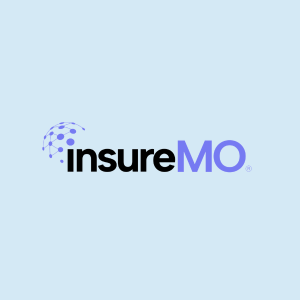Platforms

TransformHub, recognized as the Best Digital Transformation Company in Singapore, is proud to announce our strategic partnership with InsureMO. This collaboration marks a significant milestone in our commitment to lead the digital transformation landscape. As a Top Digital Transformation Company, our mission aligns perfectly with InsureMO’s vision to “make insurance easy.”
InsureMO is an advanced infrastructure platform designed specifically for the insurance industry, streamlining all applications and connectivity within the sector. With operations in over 30 countries and a clientele that includes over three hundred carriers, alongside numerous agents, brokers, and other ecosystem participants, InsureMO has established itself as a global leader in insurance technology.
InsureMO’s platform functions as a robust operating system, facilitating the seamless and rapid digitization of insurance applications, APIs, and ecosystems. This enables insurers and distribution channels to effortlessly connect and deploy products. The platform is engineered to support a wide array of digital insurance software integrations for solution providers, InsureTechs, and technology companies, ensuring that distributors can connect insurance apps with unprecedented speed and efficiency.
At TransformHub, we understand the imperative need for modernization in the insurance sector. Our expertise as the Best Digital Transformation Company in Singapore positions us uniquely to leverage InsureMO’s capabilities, delivering transformative digital solutions that cater to the evolving needs of the insurance industry. Our partnership aims to enhance the speed and agility of digital implementations, ensuring our clients achieve superior operational efficiencies and improved customer experiences.
The synergy between TransformHub and InsureMO exemplifies a shared commitment to driving innovation and excellence in digital transformation. InsureMO’s comprehensive platform supports a myriad of digital solutions, from policy management and claims processing to underwriting and customer service, all facilitated through a unified, cloud-native infrastructure. This partnership allows us to extend these capabilities to our clients, empowering them to stay competitive and responsive in a rapidly changing market.
-1.png?width=300&name=Untitled%20design%20(5)-1.png) Since 2018, MuleSoft has been a Salesforce company. TransformHub uses MuleSoft to integrate all of a company's business systems, including apps, data, devices, and more, to help it accomplish Digital Transformation. MuleSoft focuses only on systems integration of experiences, goods, and services to assist IT and business users in swiftly connecting data from any system.
Since 2018, MuleSoft has been a Salesforce company. TransformHub uses MuleSoft to integrate all of a company's business systems, including apps, data, devices, and more, to help it accomplish Digital Transformation. MuleSoft focuses only on systems integration of experiences, goods, and services to assist IT and business users in swiftly connecting data from any system.-Jun-14-2022-06-34-39-14-AM.png?width=300&name=Untitled%20design%20(2)-Jun-14-2022-06-34-39-14-AM.png) Okta allows anybody to connect to any app on any device. It's a cloud-based identity management solution that's also compatible with a variety of on-premises apps. IT can control each employee's access to any application or device with Okta. Okta is a cloud-based identity management solution that interfaces intimately with on-premises applications, directories, and identity management systems. It is safe, dependable, and thoroughly audited.
Okta allows anybody to connect to any app on any device. It's a cloud-based identity management solution that's also compatible with a variety of on-premises apps. IT can control each employee's access to any application or device with Okta. Okta is a cloud-based identity management solution that interfaces intimately with on-premises applications, directories, and identity management systems. It is safe, dependable, and thoroughly audited.
TransformHub, recognized as the Best Digital Transformation Company in Singapore, is thrilled to announce our strategic partnership with Zoho. This collaboration enhances our capability to deliver comprehensive digital transformation solutions. As a Top Digital Transformation Company, our mission aligns seamlessly with Zoho’s commitment to empowering businesses with innovative software solutions.
Zoho is renowned for its extensive suite of cloud-based business applications, designed to streamline various aspects of business operations. With a presence in over 180 countries and serving millions of users worldwide, Zoho has become a global leader in business software.
Zoho’s platform offers a wide range of applications, from CRM and finance to HR and project management, all integrated to provide a unified experience. This allows businesses to automate processes, improve efficiency, and gain valuable insights through advanced analytics.
At TransformHub, we recognize the critical role that modern, integrated software solutions play in business success. Our expertise as the Best Digital Transformation Company in Singapore uniquely positions us to leverage Zoho’s robust platform, delivering transformative solutions that meet the diverse needs of our clients. Our partnership aims to enhance operational efficiency, improve customer experiences, and drive business growth.
The collaboration between TransformHub and Zoho exemplifies a shared dedication to innovation and excellence in digital transformation. Zoho’s comprehensive suite of applications supports a wide range of business functions, enabling organizations to operate more effectively and respond swiftly to market changes. This partnership empowers us to extend these capabilities to our clients, ensuring they stay competitive and agile in an ever-evolving business landscape.
In conclusion, TransformHub’s partnership with Zoho underscores our commitment to leading the digital transformation journey. As a Top Digital Transformation Company, we are dedicated to providing innovative solutions that drive business success. Together with Zoho, we are poised to revolutionize business operations, ensuring our clients are well-equipped for the digital age.
TransformHub - Your reliable source!
We are a team of professionals who are deeply devoted to technology and think information technology (IT) improves businesses. Considered amongst the Top Digital Transformation Companies in Singapore, TransformHub will design, integrate, and manage your whole IT infrastructure so that you may increase business efficiency, maintain continuity, and meet difficult problems. By enhancing your core business, we want to be the accountable partner you can trust. We grow as you do!





-Jun-14-2022-06-09-49-52-AM.png?width=300&name=Untitled%20design%20(1)-Jun-14-2022-06-09-49-52-AM.png)